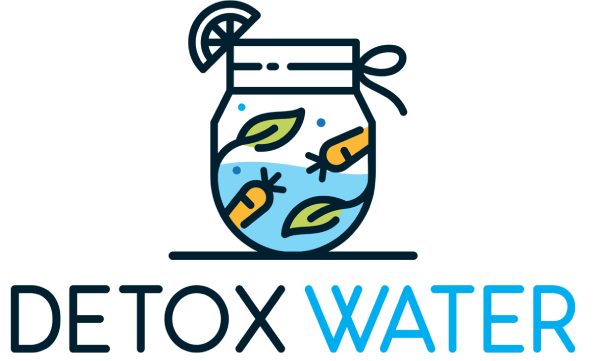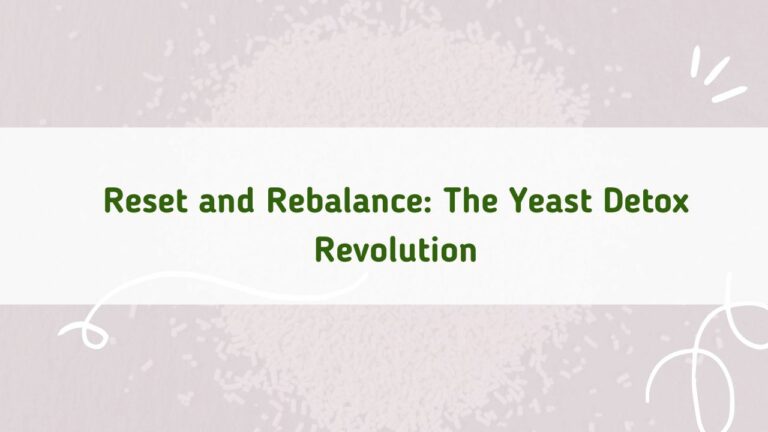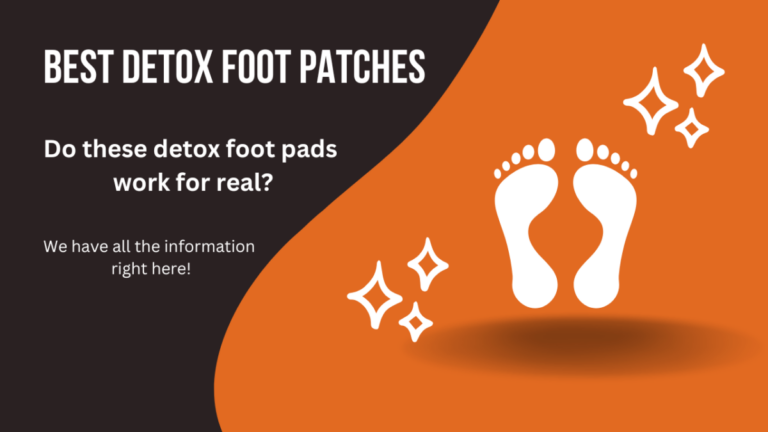Meth Detox: How Long Does It Take to Detox from Meth?

If you know someone who has struggled with a methamphetamine addiction, then you are likely familiar with the painful and difficult methamphetamine withdrawal process of trying to quit.
Knowing that Meth withdrawal can last for several days or weeks leaves many feeling overwhelmed and scared about what lies ahead.
Those moments filled with fear, longing, and discomfort may seem unbearable at times but do not worry – it’s possible to understand meth withdrawal symptoms so that people in recovery can better cope and eventually overcome their addictions.
In this blog post, we’ll look at what to expect during meth withdrawal and how to deal with some of the significant obstacles those coming off the drug face.
Contents
What to Anticipate During Meth Detox?
Below, we outline the typical stages and timelines associated with meth withdrawal and detox, which include early withdrawal, acute withdrawal, and post-acute withdrawal.
Phases of Meth Withdrawal and Detox Journey
Early Withdrawal (24-72 hours): As the initial stage unfolds, individuals might grapple with intense cravings, anxiety, exhaustion, and a heightened appetite. Physical symptoms such as sweating, racing heart, and tremors could also emerge. This is the beginning of the meth withdrawal timeline.
Acute Withdrawal (4-10 days): At this juncture, symptoms usually peak and may encompass depression, irritability, concentration challenges, sleep disturbances, and powerful drug cravings. Physical symptoms might linger, with some folks suffering from headaches, muscle aches, and digestive issues.
Post-Acute Withdrawal (2-6 weeks): Depending on the person and the addiction’s severity, post-acute withdrawal symptoms could stretch for weeks or even months. These symptoms might involve mood swings, anxiety, depression, and enduring drug cravings.
Meth Withdrawal and Detox Timeline
The onset of withdrawal symptoms: Meth withdrawal symptoms generally kick in within 24 hours of the last dose, with cravings and psychological symptoms appearing first.
Peak withdrawal symptoms: Withdrawal symptoms typically reach their zenith around days 2-4, with the most severe psychological and physical symptoms occurring during this window.
Resolution of withdrawal symptoms: Acute withdrawal symptoms tend to recede after 7-10 days. However, post-acute withdrawal symptoms might linger for several weeks or months, slowly improving as time passes.
The Journey of Medical Detox for Meth Addiction
Let’s explore medical detox’s critical components, including initial assessments, medication-assisted treatments, psychological support, etc.
The First Step: Initial Assessment
Upon entering a medical detox program, a comprehensive assessment by a team of specialists awaits each patient.
This evaluation delves into their physical and mental health, substance use history, and any co-occurring disorders needing treatment.
The assessment paves the way for a tailor-made detox plan catering to the individual’s unique requirements. In addition, it helps address drug addiction and drug abuse issues, including quitting meth.
Medical Monitoring and Stabilization
Healthcare experts keenly monitor the patient’s vital signs throughout the detox journey, ensuring their safety and managing any emerging complications.
They offer medical stabilization and dispense medications as needed to control withdrawal symptoms and minimize discomfort.
Medication-Assisted Treatment (MAT)
Medical professionals may recommend medications to alleviate withdrawal symptoms and curb cravings during detox.
These medications can enhance the patient’s overall well-being and boost their likelihood of completing detox.
Psychological Support and Therapy
Patients navigating meth detox may face emotional hurdles and psychological turmoil.
A medical detox program supplies counseling and therapy to help patients work through their emotions, cultivate coping mechanisms, and tackle the psychological facets of their addiction.
Nutritional Support
Adequate nutrition and hydration are key components in the recovery process during detox.
Medical detox programs often supply nutritional support via balanced meals and hydration, helping to ease some physical withdrawal symptoms and encourage overall health.
Management of Co-occurring Disorders
If a patient has a co-occurring mental health disorder or other medical conditions, these issues must be addressed during detox.
Healthcare professionals in a medical detox program ensure patients receive suitable care and treatment for any co-occurring disorders alongside their meth detoxification.
Supportive Environment
A medical detox program provides a nurturing and controlled setting where patients can concentrate on their recovery without the distractions and triggers that might populate their daily lives.
This environment also cultivates a sense of community among patients, allowing them to exchange experiences and support one another.
Transition Planning
As the detox process draws to a close, the medical detox team collaborates with patients to devise a plan for moving on to the next stage of their recovery journey.
This may involve referrals to inpatient or outpatient rehabilitation programs, therapy, and support groups.
Transition planning is essential to guarantee a smooth and uninterrupted care continuation after detox.
The Potential Risks and Complications of Detoxing from Meth Without Professional Help
Unmanaged Withdrawal Symptoms
Trying to detox from meth without expert assistance can leave you grappling with unmanaged withdrawal symptoms.
These physical and emotional challenges—ranging from anxiety and depression to cravings and insomnia—can intensify and become harder to navigate without the proper support and guidance.
Health Complications
Detoxing from meth sans medical oversight may trigger many health complications, including dehydration, electrolyte imbalances, and malnutrition.
Inadequate care, limited access to suitable medications, and failure to spot and tackle potential health issues during withdrawal can all contribute to these complications.
Increased Risk of Relapse
Forgoing professional support during detox can leave individuals without the essential tools and coping skills to resist cravings and effectively manage withdrawal symptoms. In addition, this support void can heighten the risk of relapse, as individuals might resort to meth to alleviate their discomfort and emotional turmoil.
Risk of Self-Harm or Suicide
Intense depression and anxiety during meth withdrawal can heighten the risk of self-harm or suicide, especially if individuals lack proper support and care.
Without professional help, access to crucial mental health resources needed to address these feelings and ensure personal safety during withdrawal may be lacking.
Inadequate Coping Mechanisms
Without professional guidance, those detoxing from meth might lean on unhealthy or ineffective coping mechanisms to manage their withdrawal symptoms.
Such tactics can reinforce negative patterns and impede recovery, making lasting sobriety an uphill battle.
Social Isolation
Detoxing without professional help can result in social isolation, as individuals might miss out on the supportive community provided by a detox program.
This lack of connection can amplify loneliness, hopelessness, and despair, potentially hindering recovery.
Lack of Aftercare Planning
When detoxing without expert support, individuals might not receive vital aftercare planning and coordination with other treatment providers.
This planning gap can make it tough to transition seamlessly to additional treatment options, such as inpatient or outpatient rehab programs, therapy, and support groups.
Medications Used in Meth Treatment
Although the FDA has not yet approved a specific medication for meth detox, several medications can be prescribed to manage withdrawal symptoms and aid recovery. In addition, these medications can help alleviate the various symptoms of meth withdrawal.
These medications can be grouped into three primary categories: antidepressants, anti-anxiety medications, and sleep aids.
Antidepressants
Selective Serotonin Reuptake Inhibitors (SSRIs): Medications like fluoxetine (Prozac) and sertraline (Zoloft) help with depression and anxiety symptoms during withdrawal by increasing serotonin levels, a mood-regulating neurotransmitter.
Bupropion (Wellbutrin): Bupropion is an unconventional antidepressant that shows promise in reducing meth cravings and alleviating depressive symptoms during withdrawal. It acts on both dopamine and norepinephrine neurotransmitters.
Anti-anxiety Medications
Benzodiazepines: Diazepam (Valium) and lorazepam (Ativan) can be prescribed to manage anxiety and agitation during meth withdrawal. However, due to their potential for abuse and dependence, they must be used with caution.
Buspirone (Buspar): As a non-benzodiazepine medication, buspirone can help manage anxiety symptoms during meth withdrawal without the risk of dependence.
Sleep Aids
Zolpidem (Ambien): Zolpidem may be prescribed to address sleep disturbances experienced during meth withdrawal. It should be used short-term and under a healthcare professional’s supervision.
Trazodone: Trazodone is an antidepressant that can also help improve sleep quality during meth withdrawal.
Medications that help manage crystal meth withdrawal symptoms
Naltrexone: An opioid receptor antagonist, naltrexone shows promise in managing crystal meth withdrawal symptoms and reducing cravings. It blocks opioids’ effects and may help decrease the rewarding effects of methamphetamine.
Modafinil: Originally developed to treat narcolepsy, modafinil is a stimulant medication that has been investigated for its potential to reduce meth cravings and improve cognitive function during withdrawal.
Gabapentin: Gabapentin, an anticonvulsant medication, has been used off-label to manage anxiety, sleep disturbances, and pain associated with meth withdrawal.
The role of these medications in the overall treatment process
Regarding meth detox and withdrawal, medications can be real game-changers. They help keep withdrawal symptoms at bay, make patients more comfortable, and reduce relapse risk.
However, it’s vital to see medications as just one piece of the puzzle in a comprehensive treatment plan involving therapy, counseling, and support services. Keep in mind that medications on their own aren’t the be-all and end-all solution to meth addiction.
The ultimate aim is to have patients’ backs throughout the withdrawal process while empowering them with the skills and support they need for lasting recovery.
How to Determine if Your Insurance Covers Meth Addiction Treatment?
Understanding your insurance coverage for meth addiction treatment is essential to access the care you need without undue financial stress. This section will discuss various steps to determine if your insurance covers meth addiction treatment.
Review Your Insurance Policy
To learn whether your insurance covers meth addiction treatment, closely examine your policy documents and benefits summary.
These resources should detail the specific coverage for mental health and substance use disorder treatment, including any possible limitations or constraints.
Contact Your Insurance Provider
Contacting your insurance provider is vital in figuring out your coverage for meth addiction treatment.
A representative can help dispel any doubts about your policy and verify the scope of your coverage for detox and rehab services.
Ask About In-Network Providers
Ask about in-network providers since they generally offer lower out-of-pocket expenses.
Your insurance company can supply a list of in-network treatment centers and specialists, simplifying your search for cost-effective care within your coverage network.
Some insurance plans necessitate preauthorization for particular treatments or levels of care.
Reach out to your insurance provider to learn if preauthorization is required and follow the proper steps to obtain approval before commencing treatment.
Understand Your Financial Responsibilities
A solid understanding of your financial responsibilities, such as copayments, deductibles, and coinsurance, is crucial when determining your insurance coverage for meth addiction treatment.
This insight will aid you in budgeting for any out-of-pocket costs linked to your care.
Evaluate Coverage for Specific Treatments
Meth addiction treatment might involve various therapies and services, like detox, inpatient or outpatient rehab, counseling, and medication-assisted treatment.
Evaluate your insurance coverage for each aspect to ensure you have a well-rounded comprehension of the care you can access, especially for substance abuse and crystal meth addiction.
Explore Alternative Payment Options
If your coverage for meth addiction treatment is limited or you lack insurance, consider alternative payment options.
These could encompass sliding-scale fees, payment plans, or financial aid from non-profit organizations and government programs.
Conclusion
When it comes to tackling methamphetamine withdrawal, early intervention is key. It can help halt addiction and reduce the risk of lasting consequences.
Taking that first step towards help is the gateway to reclaiming control over one’s life.
For those battling meth addiction and their families, it’s essential to remember that assistance is out there.
Contact healthcare professionals, therapists, and support groups for a healthier, drug-free existence.
Bouncing back from meth addiction is achievable with the right mix of support, therapy, and grit.
By dedicating themselves to the recovery journey, individuals can triumph over addiction, regain their lives, and embrace a brighter, drug-free tomorrow.

Rahul is a nutritionist and personal trainer with 3+ years of experience in the field of health coaching. He specializes in nutrition science, with a keen eye for how food choices, lifestyle habits, and physical activity impact our bodies.
Education and Certifications
- Diploma in Dietetics Health and Nutrition
- ACE Certified Personal Trainer
- ISSA Certified Nutritionist
Professional Accomplishments
He has worked with clients of all ages and specialized in different areas such as diabetes and sports nutrition. He has also implemented successful nutrition and training programs leading to long-term health outcomes.
With his extensive background in nutrition and health, he has been able to successfully contribute to multiple health-related blogs and websites. Additionally, he has developed educational materials and conducted seminars on the topic of nutrition for local businesses, providing them with key insights into how they can make better nutrition decisions.






